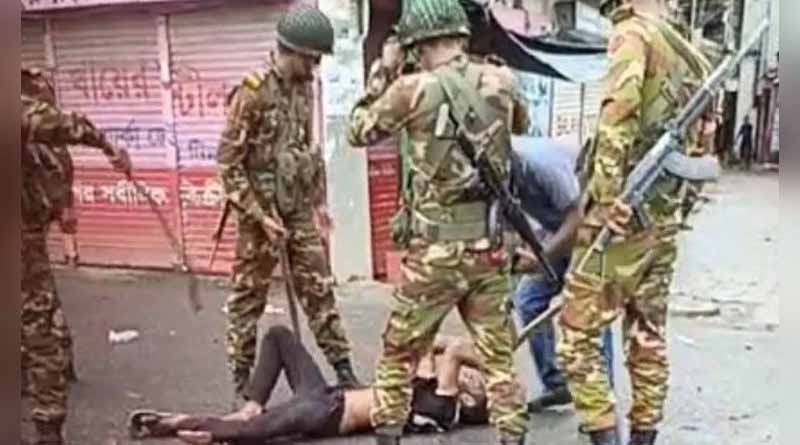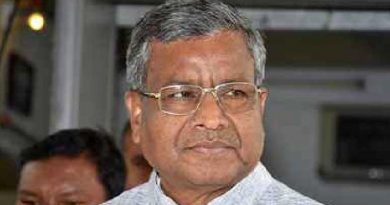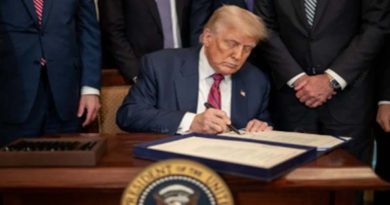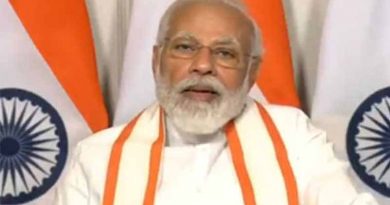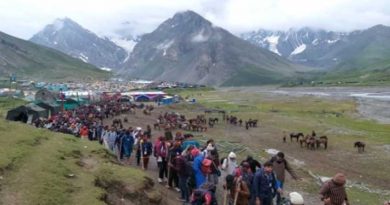Advantage Awami League amid massive chaos in Bangladesh
New Delhi: The ‘Desh Gorte July Padayatra’, or the ‘July Walkathon for Nation Building’, organised by Bangladesh’s unregistered National Citizen Party (NCP) on the first anniversary of the violent July uprising that ultimately led to former Prime Minister Sheikh Hasina’s unceremonious exit from power in August 2024, was a desperate attempt to gain public sympathy and restore efforts to make inroads into Gopalganj, long considered as a ‘fortress’ of the Awami League (AL).
Formed by student leaders who led the July 2024 uprising, the NCP, or the Jatiya Nagorik Party (NJP) as it is known in Bengali, has failed to meet the preliminary requirements and scrutiny of Bangladesh’s Election Commission for registration. However, the current interim government led by Muhammad Yunus continues to dole out innumerable freebies to the NCP, including providing its top leaders with a security cover on taxpayers’ money.
Fully aware of its fault lines, the party, through its ‘March to Gopalganj’ perhaps targetted some kind of a provocation that could have ultimately resulted in delaying the much-awaited general elections in the country.
However, in Gopalganj, the ‘banned’ Awami League and its student wing ‘Chhatra League’, even after having faced significant setbacks and considered ‘defunct’ by many, threw a spanner in the NCP’s plan of action.
It was in Gopalganj in August 2024 that the Awami League and allied organisations had committed to bring Hasina back to Bangladesh.
This Wednesday, tackling insurmountable obstacles, the party’s cadre showed that its spirit and mission continues to save Bangladesh and its inclusive socio-politico-economic fabric of progress.
Even as the Awami League workers continue to run for their lives – dozens killed already – all over the country, the party’s Gopalganj cadre stood like a rock, blocking the convoy of NCP leaders and activists who wanted to desecrate and dishonour the memorial and mausoleum complex dedicated to Bangabandhu Sheikh Mujibur Rahman at Tungipara.
In Gopalganj district, Kotalipara upazila is Hasina’s electoral area and Tungipara upazila her, as well as Sheikh Mujibur Rahman’s, birthplace. In its traditional stronghold, the Awami League held its ground.
The pro-Hasina voices were so strong that the NCP leaders had to take shelter in the office of the Gopalganj’s Superintendent of Police. The slogan going around in Gopalganj is “Sheikher Beti Aasbe, Bangladesh Haansbe, simply translated as “the daughter of Sheikh will come and Bangladesh will smile”.
The senior leaders of the NCP were taken from Gopalganj to Khulna. Seeing the situation getting tense, convenor Nahid Islam, member secretary Akhtar Hossain, chief organiser (south) Hasnat Abdullah, and chief organiser (north) Sarjis Alam had to leave by Armoured Personnel Carriers (APC).
At least 10 vehicles were set on fire in Gopalganj district headquarters. More than 50 people, including police personnel, were injured in a series of clashes. At least 400 unidentified people have also been accused in the case, 45 detained by the joint forces during raids since the violent clashes which led to five deaths.
On Thursday, July 17, the interim government’s Home Advisor Lt. Gen. (Retd.) Jahangir Alam Chowdhury said that the Gopalganj situation has been brought under control and underscored that the intelligence agencies had no prior information that such a serious incident would occur.
Meanwhile, the Yunus administration continues to blatantly support the NCP.
“This heinous act — allegedly carried out by members of the banned AL’s Chhatra League and AL activists — will not go unpunished. The perpetrators must be swiftly identified and held fully accountable. There is no place for such violence against any citizen of Bangladesh,” the Chief Adviser mentioned in a post on X.
The statement has been termed as shocking and outrageous, pointing to much deeper problems within the system. Yunus, the self-proclaimed “champion of free speech”, banned the Awami League, the party which established Bangladesh as an independent and sovereign state in the comity of nations.
Awami League, on its part, is holding its nerve to cope with the situation. The cadres have realised the significance of neglecting the masses. Their perseverance and adaptability in the face of adversity may pay some dividends in the future.
Meanwhile, political parties in Bangladesh continue to jostle over establishing control within the interim administration, judiciary and university campuses.
On Saturday, the radical Islamist Bangladesh Jamaat-e-Islami (JeI) party will hold its grand rally at Suhrawardy Udyan in Dhaka. The JeI has reserved 10,000 buses and at least two trains to bring large numbers of people from across the country to Dhaka in order to make their grand rally a success. Top Jamaat leaders are directly supervising organisational activities to mobilise supporters from Dhaka and across the country. JeI leader Golam Parwar has reiterated the party’s demand for a neutral caretaker government during the election period to ensure the democratic rights of people.
It seems that Bangladesh is heading toward a major political crisis with more violence in the coming days and weeks. For the Awami League, however, it is a win-win situation as the major political parties compete for supremacy adding more anarchy in the already topsy-turvy political landscape of Bangladesh.
(The writer is an expert on South Asia and Eurasia. He was formerly with Manohar Parrikar Institute for Defence Studies and Analyses. Views expressed are personal)

